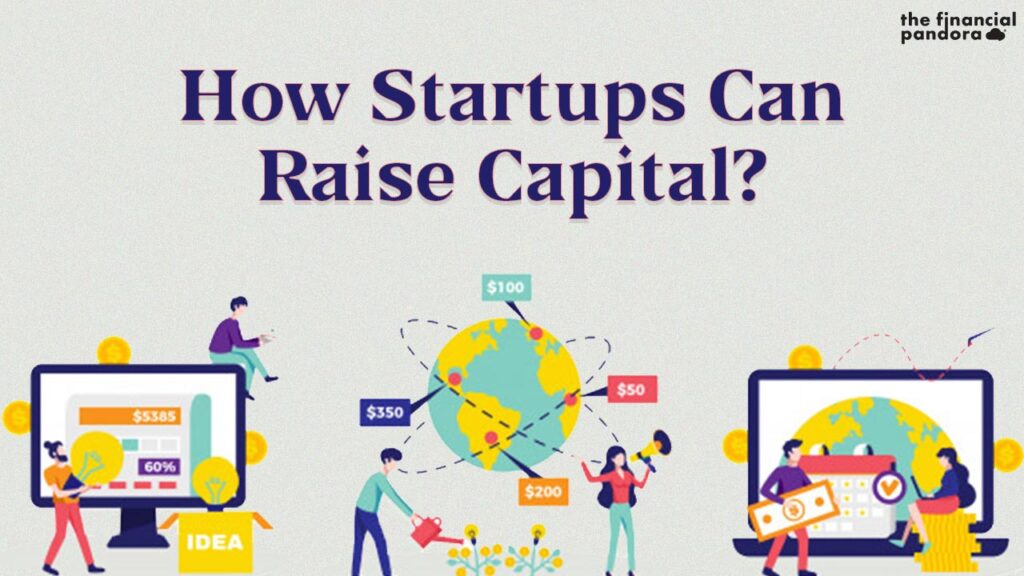Start-ups are a playground for entrepreneurs to showcase their skills and risk-taking abilities to the world. Start-ups have an extremely low success rate. This can be due to a lack of marketing, unreliable product or simply burnout faced by the entrepreneur. However, one of the most common reasons for failure of a start-up is lack of capital.
Below are a few means to finance a business. It is best to do your research and according to your requirements or abilities, pick a method or combination of methods.
The three Fs (3F)
Entrepreneurs looking for funding in the initial stages of their business generally look to the three Fs for financial support: Friends, Family and Fools. Friends and Family are the people that know you best. These people are the ones who have faith in your integrity, work ethic and drive. The close connection makes them a convenient source of initial funding.
While the first resort is generally friends and family, if you are lucky enough, you may stumble upon “fools” looking to invest into opportunities. While the term may sound derogatory, it is used to describe people who finance a business that may want to get in on the ground floor of a business. Most investors require some sort of traction in the business and prefer to wait until the start-up has proof of success rather than simply the potential. They are referred to as fools due to the level of risk that is associated with seed funding.
Bootstrapping
Bootstrapping is the act of commencing a business with minimum external financing. As and when you earn money from operations, it is re-invested to finance the start-up further. Revenue from customers is pumped back in. Since there is no external capital, the entrepreneur relies on cash flows to keep the business going.
Unless you have higher levels of personal savings, you may need to have a second job to finance your business. A shoestring budget is required to ensure the business survives.
The advantage of bootstrapping is that you own the business entirely and do not face conflict with other partners if you are the sole proprietor. You have complete independence. There are no interest payments to be made. The downside is that you also own all the risk. The lines between your personal and business finances are blurred.
Crowdfunding
Crowdfunding involves raising capital for your start-up through multiple founders. It taps into the collective efforts of a number of individuals-primarily online via social media and crowdfunding platforms. It provides entrepreneurs an opportunity to raise finance for their company, and simultaneously promote their business. It leads to higher levels of exposure, thus building a network.
Through crowdfunding, the terms aren’t pre-determined. You may or may not give the investor a stake in your business. A donation-based crowdfunding does not involve any returns for the contributor. In a rewards-based crowdfunding, the investor does not receive a stake, but you may pay them in kind, typically in the form of good or service that your business offers. In an equity-based crowdfunding, the investor receives a stake in your business.
Kickstarter and GoFundMe are some of the most popular global platforms for this kind of investment opportunity.
Angel Investors
Angel Investors refer to individuals who invest in start-ups at an early stage. These individuals look for companies with potential and finance them in exchange for equity ownership. Generally, the start-ups will already have built a product or commenced operations before getting an angel investor on board. However, they require some additional cash to take the business to the next level. Angel Investment is considered extremely risky. The individual has to be prepared to potentially lose all of their investment.
Angel investors can be found through angel investor networks, social media like LinkedIn, networking, investment bankers and even lawyers or accountants. Indian Angel Network is a popular network which connects start-ups and Investors.
Venture Capitalists
Venture Capitalists (VCs) refer to investors who invest in slightly mature companies as compared to Angel Investors. It involves financing a business in the short run and investors growing wealth in the long run. These VCs have a say in the day-to-day activities of the firm as well as the major big picture decisions. VCs require achievement of a specified level of returns for the firm or fund. For this purpose, they target scalable and cash-flow positive companies with proven and scalable products and businesses.
There are special VC firms where venture funds are created in order to invest in start-ups at an early or late stage, depending upon the preferences. The reason why entrepreneurs approach VC firms is because banks generally do not provide loans to start-ups in the way they support more established businesses. These firms can provide capital; strategic assistance; introductions to potential customers, partners, and employees; and much more. These investments are locked in until a liquidity event, such as when the company is acquired or goes public, at which point VCs realize profits from their initial investment.
Start-up Accelerators and Incubators
Accelerators and incubators offer emerging enterprises the necessary means to build a business financially as well as strategically. Accelerators have a pre-determined timeline wherein a business will work with a mentor or group of mentors to overcome obstacles or work on a specific project. Incubators do not have a timeframe, but assist the enterprise with finding a workspace, seed funding and mentoring amongst other required aspects.
Bank Loans
Start-ups can avail loans or working capital or asset-backed loans based on their business model from banks. Though uncommon, banks do finance start-ups if they are satisfied with the business model and projected returns. The impression that the entrepreneur creates is vital. Security provided is beneficial for receiving funding.
Small business loans may be availed for growth, research and development, sales and marketing, employing more people and more.
Government Funding
Governments may introduce schemes for financing such enterprises to promote business within the country. Sustainable economic growth is the key motivation behind such initiatives. Under such schemes, you may be able to apply for financing, mentoring or networking assistance amongst other aspects of an emerging enterprise.
In India, Startup India is the flagship initiative of the Government of India. The intention is to nurture innovation and business.
No matter the kind of financing path(s) you choose, communication is key. Your investors will highly appreciate regular updates, whether good news or bad. Constantly keeping them updated proves that you are highly motivated and are focusing your energy on the business. This might potentially lead to further investment.
Another aspect to keep in mind is the legal one. Ensure your vital legal documents are in order for your investors. Neither party should be missing any kind of legal contract or identification document. Take time to understanding the purpose behind each document required. A clear path should be discussed and finalized in advance for the investor(s) to exit. Organising paperwork allows you to think critically about the terms of your relationship with investors beyond financing. It also helps you double-check that you are conducting your transactions in a fair and law-abiding manner. While this activity may seem unhelpful, it will prove beneficial in the long run as your business grows.
This post was written in collaboration with Asif Yahiya Sukri LLP. Asif Yahiya Sukri LLP provides unparalleled personalized financial services to a broad range of clients across different geographical locations. With a presence in the USA, India and the MENA region, they ensure that all of your financial decisions are made carefully and with your best interests in mind. They are innovators who understand what goes into building companies.
You can also reach out to them on info@aysasia.com
Follow Us @




